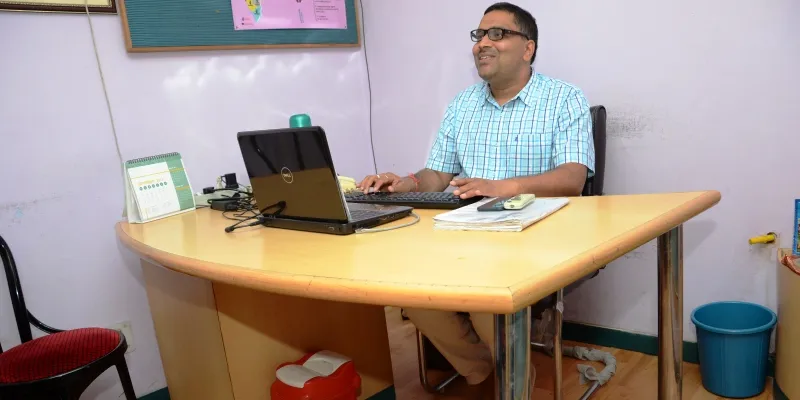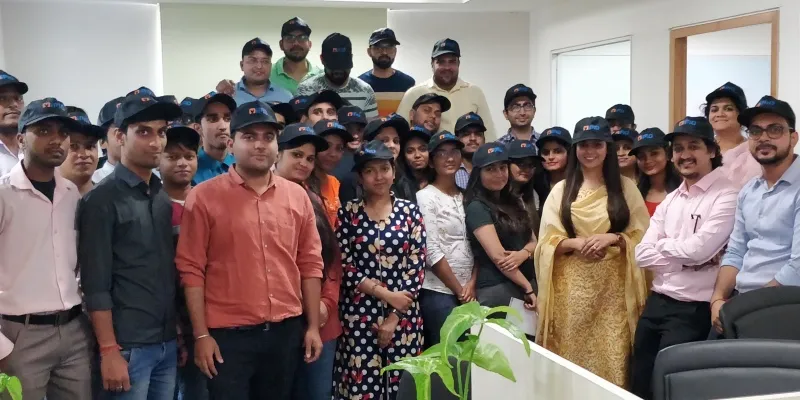These 8 initiatives helped people find jobs amid the coronavirus-induced lockdown
According to CMIE, almost 10 percent of India’s workforce currently stands unemployed, with the coronavirus pandemic behind the massive job loss. However, many individuals and organisations came forward to help the unemployed find jobs.
The year 2020 will go down in history as one which not only locked us indoors, but which also made many cast doubts on job security.
Just after the coronavirus-induced lockdown was announced in March earlier this year, India suffered job losses en masse. Millions of skilled and salaried workers were laid off just as the nationwide lockdown was announced. According to a survey conducted by Azim Premji University, around two-thirds of workers had lost their jobs, with the loss in employment more severe in urban areas.
However, even as the country gradually unlocked, the labour market itself saw a contraction. According to the latest data from Centre for Monitoring Indian Economy (CMIE), India’s unemployment rate stood at 9.9 percent, with 35 million salaried workers still looking for jobs. This comes as India formally entered into a recession for the first time in the country’s history.
But while economists, policymakers, and the unemployed are pinning their hopes on a V-shaped recovery in the economy, many individuals and organisations have taken it upon themselves to fight the high unemployment. People, NGOs and corporates from all walks of life, and from across the country have come up with initiatives to help people become self-employed – in line with Prime Minister Narendra Modi’s Aatmanirbhar Bharat mission – or helped them upskill to enable them to find jobs and get recruited.
As SocialStory looks back on the year, here are some of the job creation initiatives undertaken by people and organisations amidst the pandemic:
Helping blue-collar workers upskill and find employment

GlobalSkill app
Thane-based edtech startup, Globalskill, is helping many blue and grey collar employees, underprivileged job seekers, and students improve their skills. Founded in 2019 by Rajan Gaonkar and Atul Shirwadkar, the edtech startup aims to help one million underprivileged youth develop industry-oriented skills to find better employment opportunities.
The founders developed the GlobalSkill app specifically to provide skill development to the working class, and help them find a suitable job in the market.
The startup focuses on five key areas which have a high requirement of blue and grey collar workers – retail, ecommerce, insurance, security services, and housekeeping services.
“Firstly, our target audience is the underprivileged and uneducated group that needs a simple interface and experience that they can comprehend. Another reason is that the employer needs to post the jobs easily, so we try to correlate the skill required by the employer, and connect them with the most suitable candidate through our automated AI technology,” Rajan told SocialStory.
The platform has people who are doing skill education courses, people seeking jobs, employers posting about job requirements, and video course creators.
Enabling the migrant workforce to find hyperlocal jobs

Representational image (Source: Jobsgaar.com)
Jobsgaar is a website that connects job seekers to local traders, and small and medium-sized enterprises in Tier II and III towns. Founded by Atul Pratap Singh in July 2020, Jobsgaar aims to empower migrant workers — who returned home during the lockdown — by connecting them with the right employers in their cities, towns, or villages.
The multilingual platform assists everyone to explore and connect in Hindi, English, and Hinglish. Jobsgaar tries to connect these opportunities with local job seekers, thereby disrupting the major issue of migration in small towns and cities.
Due to the pandemic, Jobsgaar has extended its services to any job seeker, besides migrant workers, with the right qualifications. So far, it has helped about 6,000 job seekers find jobs amidst the pandemic.
“At the moment, we are focussed on 25 districts in UP, Bihar, and Assam that contribute to more than 46 percent of migration in the country. We are also leveraging the social media outreach and consumption to attract and engage audiences,” Atul shared.
Enabling underprivileged youth in Srinagar to find jobs

Babar Mian and Shifali Mian, Co-founders, bmSAY Foundation.
Founded by Babur Mian and Shefali Mian in 2020, Srinagar-based non-governmental organisation bmSAY Foundation enables underprivileged youth to obtain gainful employment through a slew of academic and skill development initiatives.
The organisation believes in empowering people to become self-sustainable in the long run. Their endeavour is focused on fighting the underlying causes of poverty and paving the way for communities to lead a good standard of life.
Through their ‘Train to Hire’ programme, the volunteers as well as trainers help the youth to crack interviews and build their career.
The foundation’s skill development programme helps people earn a sustainable living. This is done through organising training sessions pertaining to skills like carpentry, plumbing, candle-making, and stitching. bmSAY Foundation also provides them with the necessary resources to set up commercially viable businesses that can match their skill sets, immediately after completing their training.
Empowering PwDs to find jobs

Jitender Aggarwal
Diagnosed with macular degeneration of retina, a non-treatable concern, at the age of 30, Jitender Agarwal, who had been practising dentistry, realised how challenging it is for persons with disabilities (PwD) to earn a livelihood. He founded Sarthak Educational Trust, an organisation that empowers this population through the verticals of health, education, employment, vocational training, awareness generation, etc.
Through its education programmes, the NGO has rehabilitated more than 1,500 (early intervention) and 425 (inclusive education programme) children with disabilities. Its skill development centres have trained more than 20,000 PwDs in the tourism, hospitality, organised retail, and IT sectors.
During the pandemic, Jitender says that about 10-15 percent of PwDs, especially in the hospitality sector, faced an issue, but were not laid off and were all retained with a minimum salary. In other sectors, no PwDs were laid off.
Within a week after the lockdown was announced, Sarthak started online training programmes for its members. His team were proactive in helping their members cope with the pandemic.
"About 2,500 people with disabilities have been trained successfully through the online sessions, out of which 1,000 people have landed a job. Thus, the pandemic provided an opportunity for Sarthak to scale its reach," says Tarun Bansal, who has been associated with Sarthak for the past six years.
Helping people return to work

Co-founders: Suyash Jain and Rajat Agarwal
A B2B growth manager at Bijnis (formerly ShoeKonnect), Suyash Jain, along with his growth specialist colleague, Rajat Agarwal, started the social initiative COVID-19 Free Jobs Forum to help job seekers who were laid off in times of the pandemic.
"I created a Google form titled ‘Register yourself for Job Opportunities’ which consisted of necessary information like name, number, mail Id, the field of job, city, last company name, last salary, and designation, and posted it on a Facebook group,” says Suyash.
The Google form got good responses in less than 24 hours with more than 100+ job seekers at the time. The duo shared the details with the corporates who were looking out for new employees, thus bridging the gap between the two divides.
In addition, they also started commenting on various LinkedIn posts when people got laid off, fired or were looking for a new job opportunity.
Currently, they have 10,000+ job seekers and 500+ employers who are registered on their platform.
Creating jobs for semi-educated youth

Team Mimo aims to solve the core problem most companies face in rural regions: reaching the last mile.
Founded in 2016, MIMO Technologies (Minimum Investment | Maximum Outcome) aims to use its innovation to help people across India, especially in rural areas, enhance their earnings. The mobile application intermediates between the service providers, like banks and other institutions, and its field officers, typically underemployed youth.
The organisation has tied up with many partners in various sectors like BFSI, logistics, marketing, and software. These organisations provide specific services or micro jobs. The services needed are broken into the simplest tasks possible, involving cash collection, marketing, logistics, mobile POS, and data digitisation, amongst others.
Each of these jobs can pay anything between Rs 10 and Rs 450. Based on their interest and the frequency of jobs, the field officers can make an earning of at least Rs 35,000 a month.
“Initially, the pandemic almost made the business come to a standstill. The number of transactions dropped drastically, though it was manageable,” says Lathika Regunathan, Founder and CEO of MIMO Technologies Pvt Ltd. “However, after this initial setback, we introduced new services like data digitisation which could be done by people from their homes.”
Employment through enterprise

Image credit: Jagriti
The need to find leaders who can create jobs led Shashank Mani and his team to start Jagriti — a non-profit charitable organisation which has been working for the last 12 years to promote enterprise in small towns and districts of this country. It aims to inspire young Indians living in middle-income regions such as Purvanchal, Uttar Pradesh to lead development by taking to enterprise.
Expected to launch by August 2021 in Deoria, Jagriti Enterprise Centre – Purvanchal (JECP) will focus on creating an ecosystem that can create more jobs. It focuses on inspiring enterprise through local role models and peer-to-peer interaction. It will support startup companies through mentorship, by connecting enterprises to the national and global network, financially support incubated enterprises, and create a local ecosystem conducive to incubation.
The centre also hopes to spark innovation through six Centres of Excellence (CoEs) divided into — women enterprise, healthcare, digital, agro processing, urbanisation, and handicraft and apparel.
There is also an increased focus on women-led enterprise as Jagriti believes that change will come through women. It harnesses its network of 17 lakh women to achieve that goal.
Opportunities for military veterans

According to the Director-General of Resettlement (DGR) of the Army, around 75,000 veterans aged between 32-45 years retire each year. This is where organisations step in. For example - Amazon had launched the Military Veterans Employment programme in 2019 as a part of its efforts to make the hiring diverse and inclusive.
According to Amazon, over 17,500 military veterans and spouses are actively engaged in the programme worldwide. It was developed to help the organisation create meaningful career opportunities for military veterans, and was an extension to testbed projects such as AWS apprenticeship and Military Leaders Programme.
“We have partnered with the Office of the DGR and the Army Welfare Placement Organisation (AWPO) to create fulfilling and exciting alternate career opportunities for our military families who have relentlessly served the country,” said Swati Rustogi, Director of HR, Amazon India Operations.
Edited by Anju Narayanan




![[TechSparks 2020] Startups can create millions of jobs, say key voices](https://images.yourstory.com/cs/2/220356402d6d11e9aa979329348d4c3e/ts-feature-image-1604584283031.png?fm=png&auto=format&h=100&w=100&crop=entropy&fit=crop)
![[TechSparks 2020] Jobs For All: A discussion on formalising gig workforce, building digital identity, and more](https://images.yourstory.com/cs/2/77e43870d62911eaa8e9879653a67226/jobs-1-1604046086024.PNG?fm=png&auto=format&h=100&w=100&crop=entropy&fit=crop)




